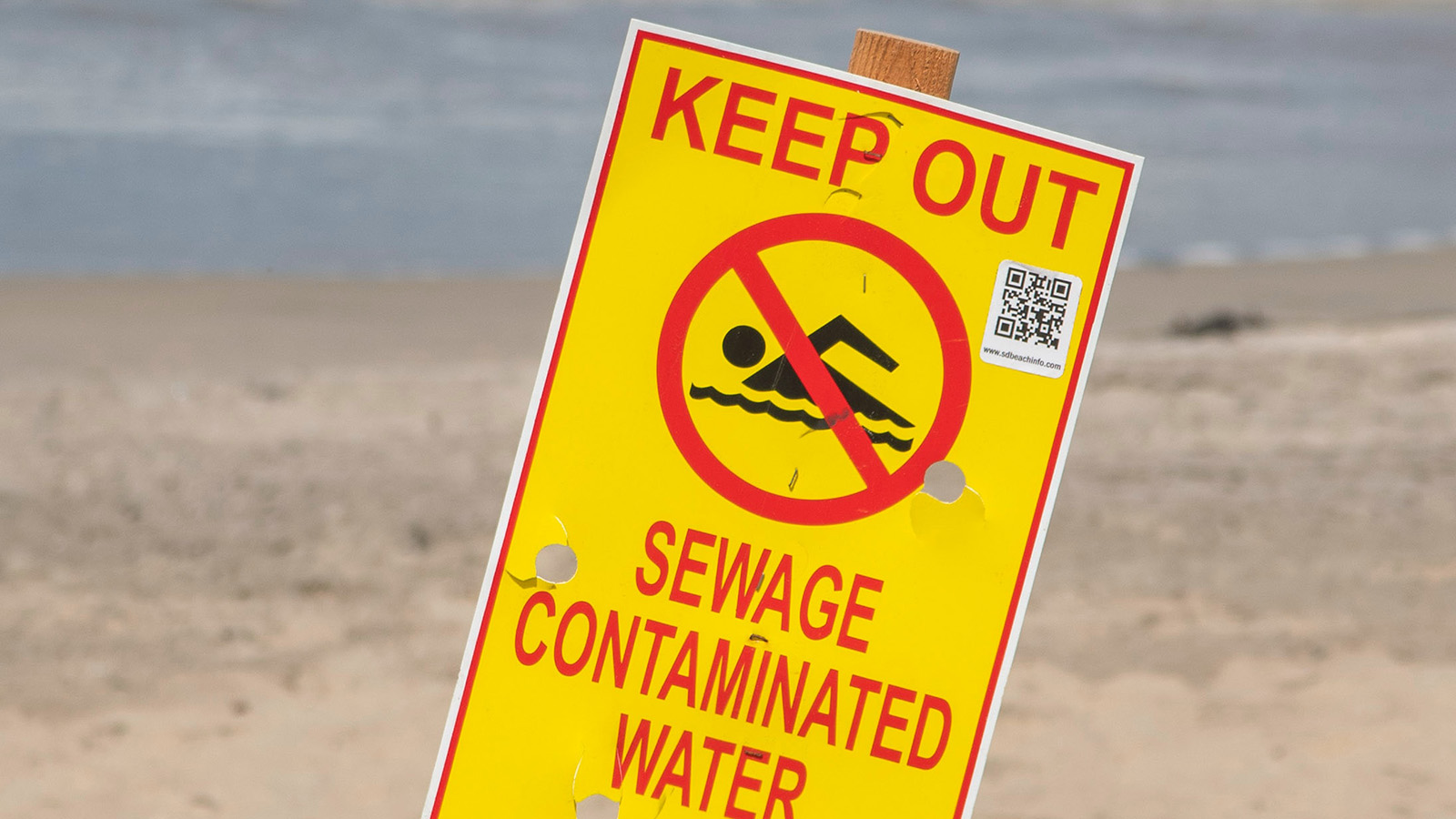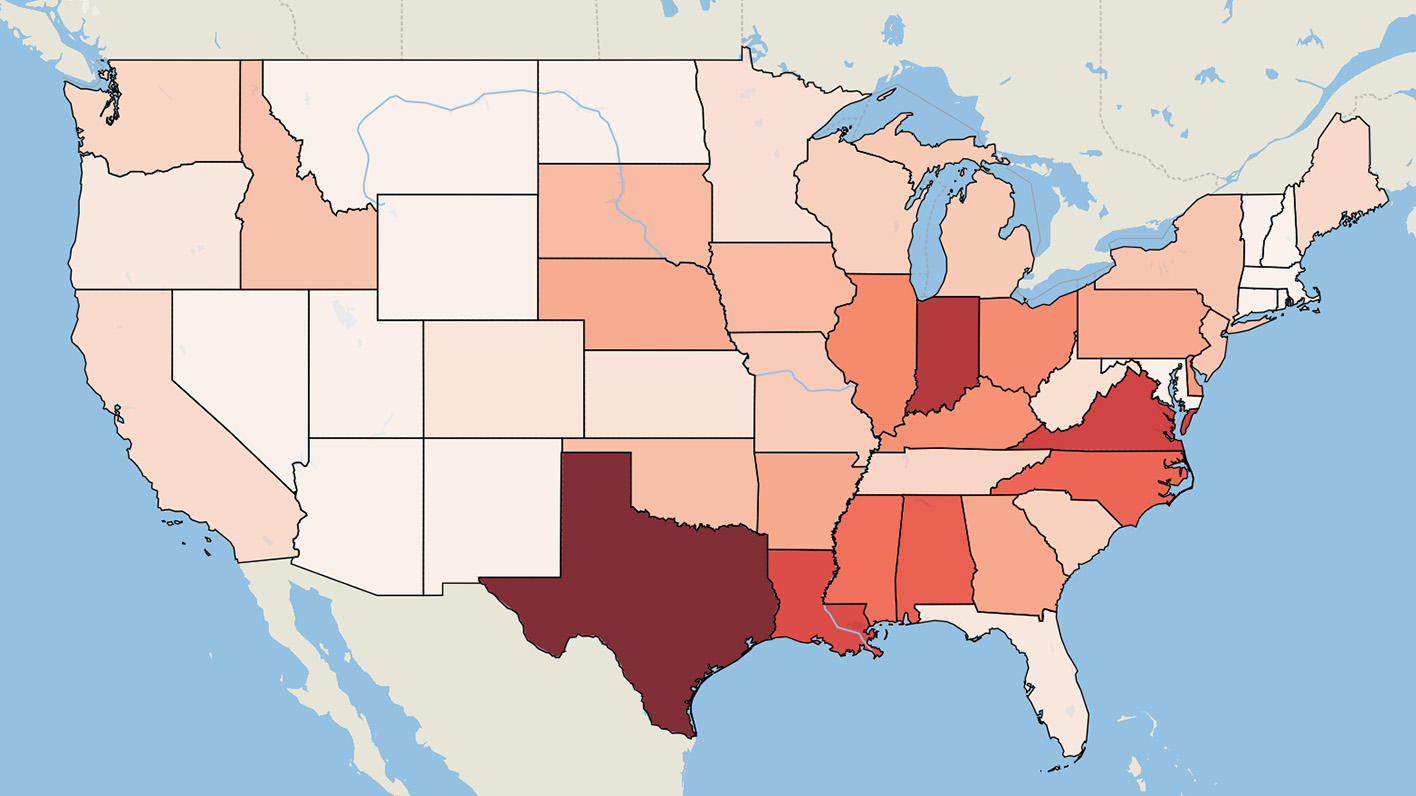
The Threat of “Forever Chemicals”
How PFAS put Americans’ health at risk, and what we can do about it
Per- and polyfluoroalkyl substances, more commonly known as PFAS, are dangerous for public health. Because these “forever chemicals” are nearly indestructible, PFAS build up in the bodies of humans over time and persist in the environment. PFAS can cause kidney cancer, thyroid disruption, reduced responses to vaccination, and other health problems.

Downloads
What are PFAS and what are they used for?
Per- and polyfluoroalkyl substances, or PFAS, are found in products ranging from coatings for non-stick pans, paper products and textiles, to firefighting foam and electronics. Their oil- and water-repelling capabilities, their stability even at high temperatures, and their friction-reduction qualities have led to PFAS becoming a common ingredient in product manufacturing – and a ubiquitous presence in our homes and our communities.
However, PFAS are dangerous for public health. Sometimes known as “forever chemicals” because they are nearly indestructible in the environment, PFAS build up in the human body over time and persist in the environment. Today, PFAS are so widespread that nearly every American has these chemicals in their blood. PFAS can cause kidney cancer, thyroid disruption, reduced responses to vaccination, and other health problems.
Nonetheless, PFAS production continues, adding to the pollution that threatens our health and environment, both today and for decades to come.
To protect public health, the United States must take strong action to stop the flow of PFAS into our environment and our bodies, clean up existing PFAS contamination, and hold manufacturers and polluters responsible for cleaning up the pollution and public health damage they have caused.
How do PFAS harm our health?
Even low levels of exposure to PFAS are linked to a range of health effects, including:
- Harm to the kidneys, leading to chronic kidney disease or kidney cancer;
- Reduced antibody responses to vaccinations in both children and adults; and
- Increased risk of gestational diabetes, preeclampsia, low birth weight and childhood obesity.
Newer types of PFAS are no safer for human health and the environment than older PFAS, such as PFOA and PFOS.
- New PFAS travel more easily through water, resulting in widespread exposure, and thus may pose more risks to human and environmental health.
- The U.S. Environmental Protection Agency has found that two newer PFAS chemicals create many of the same health impacts as older PFAS. The EPA determined the toxicity of the PFAS known as GenX is in the same range as PFOA, the legacy PFAS it replaced.
- Hundreds of public health experts around the globe have expressed concern about the health impacts of continuing to produce and use all varieties of PFAS.
Many drinking water sources across America are contaminated with PFAS.
As of June 2022, 2,858 locations in 50 states and two U.S. territories were known to be contaminated with PFAS. Recent analysis by the Environmental Working Group has concluded that PFAS are now likely present in all major drinking water supplies in the U.S.
- In a 2022 study of PFAS in U.S. surface waters, 83% of the waterways sampled were found to contain at least one PFAS compound, with levels in some cases upward of 1,000 parts per trillion. For some PFAS, concentrations as low as 0.004 parts per trillion are considered a risk to human health.
- The same study detected 35 different PFAS chemicals in sampled waterways, with PFOA and PFOS appearing in around 70% of all samples taken.
- A 2019 Environmental Working Group study analyzing tap water from 44 locations in 31 states plus the District of Columbia detected PFAS in all but one of the samples collected. Some of the highest levels of contamination were in samples from major cities, including Miami, Philadelphia and New Orleans, and suburbs of New York City.
- A 2022 analysis of groundwater from five aquifer systems in the eastern United States found that 60% of public-supply wells contained at least one PFAS.
PFAS contaminate food.
PFAS aren’t just found in our drinking water. They also contaminate much of our food. In fact, a 2016 EPA report notes that food contamination is the main way people are exposed to some PFAS.
- A 2018 FDA study assessing produce grown near a PFAS manufacturing plant found PFAS in 80% of the food samples taken.
- A 2020 study analyzing 70 samples of finfish and shellfish from four regions of the U.S. and seven countries with sizable seafood imports to the U.S. found PFAS in around one third of all samples, with PFOS the main compound detected. Some seafood samples contained as many as 10 PFAS compounds.
How can we get rid of PFAS from our bodies and the environment?
The scientific evidence shows that when we halt the use of PFAS chemicals, we reduce their presence in the human body and risk to our health.
Protecting human health and the environment from toxic PFAS will require policymakers to take a comprehensive approach.
Federal and state policymakers should ban the production and use of all PFAS.
- Banning all PFAS is crucial to protecting the environment and public health. The manufacturing and use of these toxic chemicals have already created widespread contamination that is extremely difficult to clean up and will create health risks for years to come. Because PFAS are persistent, soluble in water, and toxic at extremely low levels, any sensible strategy must center on moving our society to safer alternatives.
- PFAS regulations should apply to all PFAS chemicals as a single class. Controlling the use of one type of PFAS at a time has historically led to the regrettable substitution of replacement chemicals that are less well understood, but not necessarily safer.
Federal and state policymakers should adopt measures to stop PFAS from contaminating our waterways, groundwater and food:
- State officials should use the full extent of their existing authority under the Clean Water Act and state laws to halt flows of PFAS into surface waters.
- State and federal authorities – including the Federal Aviation Administration – should move swiftly to end the use of PFAS in all firefighting foam, a major pathway for water contamination.
- The U.S. Environmental Protection Agency should update pollution control standards to eliminate direct discharges of all PFAS from all industrial sources.
- Federal decisionmakers should establish health-based drinking water standards for all PFAS. Several states have established limits on PFAS in drinking water, but while the process of formulating enforceable federal standards for a small number of PFAS chemicals is underway, currently no such standards exist at the federal level.
Policymakers should ensure comprehensive cleanup of existing PFAS contamination.
This means mandating and providing dedicated funding for regular monitoring for PFAS in public drinking water, groundwater and waterways to jump-start remediation and thereby prevent PFAS contamination from spreading.
- Dedicated state and federal funding should be made available to enable comprehensive cleanup of groundwater and drinking water supplies and ensure compliance with any PFAS-in-drinking-water limit adopted at either state or federal levels. Funding already allocated through the 2021 Infrastructure Investment and Jobs Act is a positive step, but insufficient to cover the full costs of the scale of cleanup necessary.
- The EPA should designate all PFAS, as a single class, as hazardous substances. This would facilitate better management of the entire class of chemicals and also apply strict storage, transfer and disposal requirements to the chemicals under the federal Resource Conservation and Recovery Act. In addition, such a designation would ensure that PFAS chemicals are actually cleaned up at Superfund sites.
- Regulators should ensure that PFAS removed from water or soil during remediation efforts do not create new pollution risks after disposal. The best solution is to store PFAS and PFAS-containing materials until they can be destroyed.
- State and federal leaders should hold the companies and U.S. government agencies that are responsible for PFAS contamination accountable for cleaning up their pollution. Cleaning up PFAS contamination on the timescale needed requires those who created the problem to pay their fair share. Accountability can be obtained through legislative action, enforcement of cleanup laws or lawsuits.
Topics
Elizabeth Ridlington
Associate Director and Senior Policy Analyst, Frontier Group
Elizabeth Ridlington is associate director and senior policy analyst with Frontier Group. She focuses primarily on global warming, toxics, health care and clean vehicles, and has written dozens of reports on these and other subjects. Elizabeth graduated with honors from Harvard with a degree in government. She joined Frontier Group in 2002. She lives in Northern California with her son.
James Horrox
Policy Analyst, Frontier Group
James Horrox is a policy analyst at Frontier Group, based in Los Angeles. He holds a BA and PhD in politics and has taught at Manchester University, the University of Salford and the Open University in his native UK. He has worked as a freelance academic editor for more than a decade, and before joining Frontier Group in 2019 he spent two years as a prospect researcher in the Public Interest Network's LA office. His writing has been published in various media outlets, books, journals and reference works.
Emily Scarr
State Director, Maryland PIRG Foundation
Emily directs strategy, organizational development, research, communications and legislative advocacy for Maryland PIRG. Recently, Emily helped win small donor public financing in Montgomery and Howard counties, and the Maryland Keep Antibiotics Effective Act to protect public health by restricting the use of antibiotics on Maryland farms. Emily also serves on the Executive Committees of the Maryland Fair Elections Coalition and the Maryland Campaign to Keep Antibiotics Working, and the Steering Committees for the Maryland Pesticide Action Network and Marylanders for Open Government. Emily lives in Baltimore with her husband and dog.
John Rumpler
Clean Water Director and Senior Attorney, Environment America Research & Policy Center
John directs Environment America's efforts to protect our rivers, lakes, streams and drinking water. John’s areas of expertise include lead and other toxic threats to drinking water, factory farms and agribusiness pollution, algal blooms, fracking and the federal Clean Water Act. He previously worked as a staff attorney for Alternatives for Community & Environment and Tobacco Control Resource Center. John lives in Brookline, Massachusetts, with his family, where he enjoys cooking, running, playing tennis, chess and building sandcastles on the beach.
Find Out More

Get the Lead Out

Safe for Swimming?

Who are the top toxic water polluters in your state?




